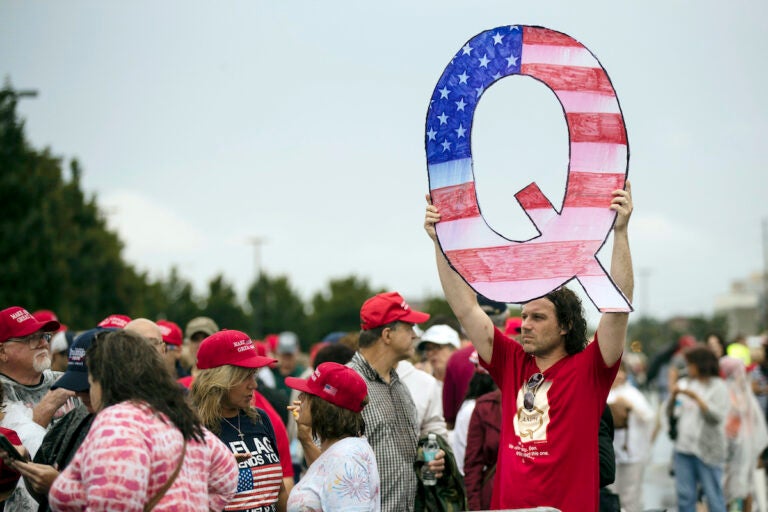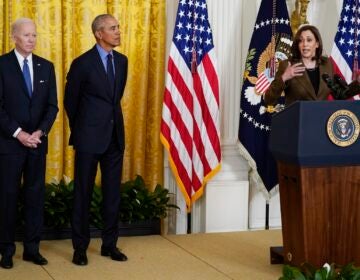Debunking deepfakes, disinformation and conspiracy theories
Why do people believe conspiracy theories and misinformation? What threat do they pose to our democracy?
Listen 49:45
David Reinert holding a Q sign waits in line with others to enter a campaign rally with President Donald Trump Republican U.S. Senate candidate Rep. Lou Barletta, R-Pa., Thursday, August 2, 2018 in Wilkes-Barre, Pa. (AP Photo/Matt Rourke)
Misinformation and conspiracy theories about the election and voting, the pandemic, even the wildfires out west are everywhere online. It’s even a challenge for the most careful news readers to keep all the facts straight. And the amount of domestic disinformation has also dramatically increased in recent years – it’s not just the Russians pushing phony news any more. This hour, why is there so much misinformation online, and who is spreading it? Also, how serious a threat are the conspiracy theories like QAnon to our democracy, and how can we fight them? We’ll talk with CLINT WATTS, Distinguished Research Fellow at the Foreign Policy Research Institute and BRENDAN NYHAN, professor of government at Dartmouth College.
WHYY is your source for fact-based, in-depth journalism and information. As a nonprofit organization, we rely on financial support from readers like you. Please give today.





